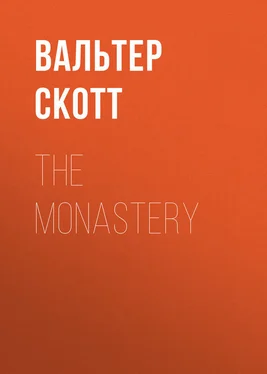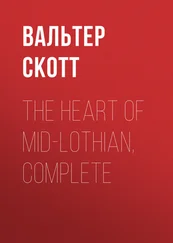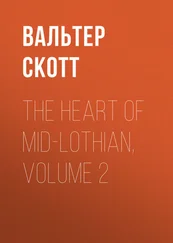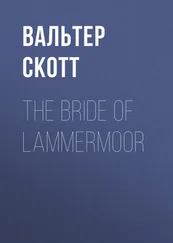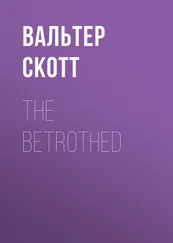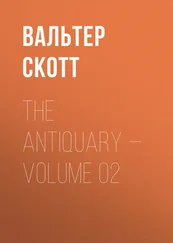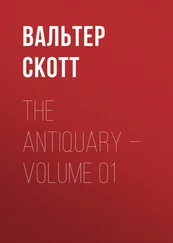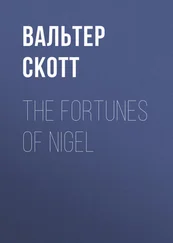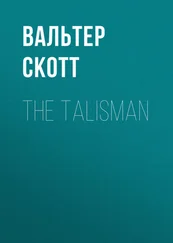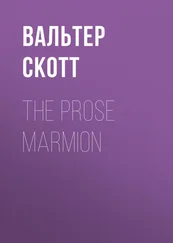Вальтер Скотт - The Monastery
Здесь есть возможность читать онлайн «Вальтер Скотт - The Monastery» — ознакомительный отрывок электронной книги совершенно бесплатно, а после прочтения отрывка купить полную версию. В некоторых случаях можно слушать аудио, скачать через торрент в формате fb2 и присутствует краткое содержание. Жанр: foreign_antique, foreign_prose, Альтернативная история, на английском языке. Описание произведения, (предисловие) а так же отзывы посетителей доступны на портале библиотеки ЛибКат.
- Название:The Monastery
- Автор:
- Жанр:
- Год:неизвестен
- ISBN:нет данных
- Рейтинг книги:4 / 5. Голосов: 1
-
Избранное:Добавить в избранное
- Отзывы:
-
Ваша оценка:
- 80
- 1
- 2
- 3
- 4
- 5
The Monastery: краткое содержание, описание и аннотация
Предлагаем к чтению аннотацию, описание, краткое содержание или предисловие (зависит от того, что написал сам автор книги «The Monastery»). Если вы не нашли необходимую информацию о книге — напишите в комментариях, мы постараемся отыскать её.
The Monastery — читать онлайн ознакомительный отрывок
Ниже представлен текст книги, разбитый по страницам. Система сохранения места последней прочитанной страницы, позволяет с удобством читать онлайн бесплатно книгу «The Monastery», без необходимости каждый раз заново искать на чём Вы остановились. Поставьте закладку, и сможете в любой момент перейти на страницу, на которой закончили чтение.
Интервал:
Закладка:
The worst part of the magnificent view, in the monk’s apprehension, was, that the Monastery stood on the opposite side of the river, and that of the many fine bridges which have since been built across that classical stream, not one then existed. There was, however, in recompense, a bridge then standing which has since disappeared, although its ruins may still be traced by the curious.
It was of a very peculiar form. Two strong abutments were built on either side of the river, at a part where the stream was peculiarly contracted. Upon a rock in the centre of the current was built a solid piece of masonry, constructed like the pier of a bridge, and presenting, like a pier, an angle to the current of the stream. The masonry continued solid until the pier rose to a level with the two abutments upon either side, and from thence the building rose in the form of a tower. The lower story of this tower consisted only of an archway or passage through the building, over either entrance to which hung a drawbridge with counterpoises, either of which, when dropped, connected the archway with the opposite abutment, where the farther end of the drawbridge rested. When both bridges were thus lowered, the passage over the river was complete.
The bridge-keeper, who was the dependant of a neighbouring baron, resided with his family in the second and third stories of the tower, which, when both drawbridges were raised, formed an insulated fortalice in the midst of the river. He was entitled to a small toll or custom for the passage, concerning the amount of which disputes sometimes arose between him and the passengers. It is needless to say, that the bridge-ward had usually the better in these questions, since he could at pleasure detain the traveller on the opposite side; or, suffering him to pass half way, might keep him prisoner in his tower till they were agreed on the rate of pontage.
{Footnote: A bridge of the very peculiar construction described in the text, actually existed at a small hamlet about a mile and a half above Melrose, called from the circumstance Bridge-end. It is thus noticed in Gordon’s Iter Septentrionale : —
“In another journey through the south parts of Scotland, about a mile and a half from Melrose, in the shire of Teviotdale, I saw the remains of a curious bridge over the river Tweed, consisting of three octangular pillars, or rather towers, standing within the water, without any arches to join them. The middle one, which is the most entire, has a door towards the north, and I suppose another opposite one toward the south, which I could not see without crossing the water. In the middle of this tower is a projection or cornice surrounding it: the whole is hollow from the door upwards, and now open at the top, near which is a small window. I was informed that not long agro a countryman and his family lived in this tower – and got his livelihood by laying out planks from pillar to pillar, and conveying passengers over the river. Whether this be ancient or modern, I know not; but as it is singular in its kind I have thought fit to exhibit it.”
The vestiges of this uncommon species of bridge still exist, and the author has often seen the foundations of the columns when drifting down the Tweed at night for the purpose of killing salmon by torch-light. Mr. John Mercer of Bridge-end recollects, that about fifty years ago the pillars were visible above water; and the late Mr. David Kyle, of the George Inn, Melrose, told the author that he saw a stone taken from the river bearing this inscription: —
“I, Sir John Pringle of Palmer stede, Give an hundred markis of gowd sae reid, To help to bigg my brigg ower Tweed.”
Pringle of Galashiels, afterwards of Whytbank, was the Baron to whom the bridge belonged.}
But it was most frequently with the Monks of Saint Mary’s that the warder had to dispute his perquisites. These holy men insisted for, and at length obtained, a right of gratuitous passage to themselves, greatly to the discontent of the bridge-keeper. But when they demanded the same immunity for the numerous pilgrims who visited the shrine, the bridge-keeper waxed restive, and was supported by his lord in his resistance. The controversy grew animated on both sides; the Abbot menaced excommunication, and the keeper of the bridge, though unable to retaliate in kind, yet made each individual monk who had to cross and recross the river, endure a sort of purgatory, ere he would accommodate them with a passage. This was a great inconvenience, and would have proved a more serious one, but that the river was fordable for man and horse in ordinary weather.
It was a fine moonlight night, as we have already said, when Father Philip approached this bridge, the singular construction of which gives a curious idea of the insecurity of the times. The river was not in flood, but it was above its ordinary level — a heavy water , as it is called in that country, through which the monk had no particular inclination to ride, if he could manage the matter better.
“Peter, my good friend,” cried the Sacristan, raising his voice; “my very excellent friend, Peter, be so kind as to lower the drawbridge. Peter, I say, dost thou not hear? – it is thy gossip, Father Philip, who calls thee.”
Peter heard him perfectly well, and saw him into the bargain; but as he had considered the Sacristan as peculiarly his enemy in his dispute with the convent, he went quietly to bed, after reconnoitring the monk through his loop-hole, observing to his wife, that “riding the water in a moonlight night would do the Sacristan no harm, and would teach him the value of a brig the neist time, on whilk a man might pass high and dry, winter and summer, flood and ebb.”
After exhausting his voice in entreaties and threats, which were equally unattended to by Peter of the Brig, as he was called, Father Philip at length moved down the river to take the ordinary ford at the head of the next stream. Cursing the rustic obstinacy of Peter, he began, nevertheless, to persuade himself that the passage of the river by the ford was not only safe, but pleasant. The banks and scattered trees were so beautifully reflected from the bosom of the dark stream, the whole cool and delicious picture formed so pleasing a contrast to his late agitation, to the warmth occasioned by his vain endeavours to move the relentless porter of the bridge, that the result was rather agreeable than otherwise.
As Father Philip came close to the water’s edge, at the spot where he was to enter it, there sat a female under a large broken scathed oak-tree, or rather under the remains of such a tree, weeping, wringing her hands, and looking earnestly on the current of the river. The monk was struck with astonishment to see a female there at that time of night. But he was, in all honest service, – and if a step farther, I put it upon his own conscience, – a devoted squire of dames. After observing the maiden for a moment, although she seemed to take no notice of his presence, he was moved by her distress, and willing to offer his assistance. “Damsel,” said he, “thou seemest in no ordinary distress; peradventure, like myself, thou hast been refused passage at the bridge by the churlish keeper, and thy crossing may concern thee either for performance of a vow, or some other weighty charge.”
The maiden uttered some inarticulate sounds, looked at the river, and then in the face of the Sacristan. It struck Father Philip at that instant, that a Highland chief of distinction had been for some time expected to pay his vows at the shrine of Saint Mary’s; and that possibly this fair maiden might be one of his family, travelling alone for accomplishment of a vow, or left behind by some accident, to whom, therefore, it would be but right and prudent to use every civility in his power, especially as she seemed unacquainted with the Lowland tongue. Such at least was the only motive the Sacristan was ever known to assign for his courtesy; if there was any other, I once more refer it to his own conscience.
Читать дальшеИнтервал:
Закладка:
Похожие книги на «The Monastery»
Представляем Вашему вниманию похожие книги на «The Monastery» списком для выбора. Мы отобрали схожую по названию и смыслу литературу в надежде предоставить читателям больше вариантов отыскать новые, интересные, ещё непрочитанные произведения.
Обсуждение, отзывы о книге «The Monastery» и просто собственные мнения читателей. Оставьте ваши комментарии, напишите, что Вы думаете о произведении, его смысле или главных героях. Укажите что конкретно понравилось, а что нет, и почему Вы так считаете.
